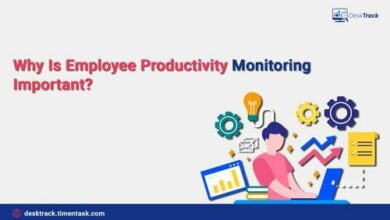How to Successfully Start a Business in 2024

The allure of being your own boss has many people wanting to be their own boss. Whether you have a great product idea or business concept, starting your own business is going to take a lot of planning. That is why we have put together this guide on how to successfully start a business in 2024.
What is your business?
The first thing to do is to determine what your business will be. Do you have a new invention that you want to patent and begin selling? Are you planning on selling some goods as a side hustle? Do you want to quit your day job and start a new business full-time? Determine what your big business idea is and how you want to execute your plans for your new business. You will need to have at least some idea of what you want to do before you can truly get started.
Conduct Market Research
A lot of new business owners will skip this step, but it is crucial to helping your business succeed. You need to know if there is room in your local area for what you are bringing to the table. For example, if you are opening a new dog boutique shop with organic treats and cute costumes, you need to make sure that you are not opening your store only a short distance away from another dog boutique. A new landscaping company is not going to do as well in its first year if there are already a dozen others in the area that offer the exact same services. So, taking the time to conduct your market research is crucial to giving your business the best chance of succeeding.
When conducting market research, ask yourself these questions:
- Is the product or service you are offering something people need or want?
- How many prospective customers are currently in your area?
- Where do your customers live?
- How will you get your product or service to your customers?
- Are the income demographics for your target audience in line with the costs of your products or services?
- What do similar services or products cost your target market?
- How saturated is the local market with competitors that offer similar products or services?
Write a Business Plan
Your business plan will map out the details of your business, including the structure, your products or services, how you will run the business, financing, and even market research. The business plan is a good guide for you to reference when you are getting your business up and running. It is also necessary to help you secure funding along the way.
What do I need to include in a business plan?
There are a few things that every good business plan needs:
- Executive summary: includes your mission statement, products or services, financial information, growth plans, and basic information about the company.
- Company description: go into detail about your prospective customers’ pain points and how your business helps them. Talk about your products, consumers, your competitive advantage, and anything else that is relevant.
- Market analysis: talk about your industry and target market. Look at trends and themes in the industry. What do your successful competitors do, and how can you do it better? This is where you answer those questions.
- Company structure: describe the legal structure of your business, as well as who is in charge of what in your business. If you are working with a team, you can even include the CVs of the important members of your team here.
- Your products or services: detail what you have to offer and how your customers will benefit from it. If you have any copyright or patents on your products or services, you can share the information of those.
- Marketing strategy: how will you market your business when it is ready to launch?
- Funding requirements: how much do you need to get your business off the ground? What sources of funds do you already have, and what are you still needing?
- Financial projections: put together a prospective financial outlook for your business over the next five years. Clearly explain all of your projections and link them all to your financing requests.
- Appendix: this is optional, but you can include any important supporting documents and materials.
Name Your Business
The name of your business is essential. It will tell your customers what you do and have to offer, and it needs to be chosen before you finish your business plan. However, you might need to be flexible on the name. Try to choose two or three variations of your desired name. Then, search online to ensure it is not taken. In addition to ensuring that the business name is available, it is also a good idea to ensure that it is not protected under some sort of trademark. You can find that through the U.S. Patent and Trademark Office (USPTO).
Also, make sure you look on all social media platforms your business will be on and ensure the name is available there. You also need to ensure the name is available as a domain name. You will want the name to perfectly match your social profiles and your domain name. For example, if you are on social media as “Business Name”, but your domain name is “The Business Name”, it could potentially confuse customers. Once you pick the right name, get it locked down online as quickly as possible.
Select an Ownership Structure for the Business
There are a few different legal structures that you can choose from, and whichever one you choose will help determine what you are liable for and what taxes you will pay. The main legal business structures are:
- Sole proprietorship: a single person owns the business and pays the income taxes on their profits.
- Partnership: Multiple people own the business together.
- Limited liability company (LLC): The business owners are classified as members, which shields them from any personal responsibility for liabilities and debts.
- Corporation: Owners and shareholders are taxed separately from the corporation itself.
Register the Business
The next step is to register your business. Every state has requirements for registering a new business, so you will need to look up the specific requirements for what your state requires of you. For example, some states require you to get an Employer Identification Number, but in others, you need a North American Industry Classification System.
Do I need an Employer Identification Number?
An Employer Identification Number (EIN) is often required if you are going to have employees. This is used in place of the owner’s social security number when applying for grants and loans, as well as filing taxes and opening bank accounts or lines of credit. You can obtain one on the IRS website.
Obtain Licenses and Permits
Depending on your state and your industry, you might need specific licenses and permits. For example, a hairstylist business will require you and your employees to have cosmetology licenses. A restaurant needs a health inspection and a liquor license.
If you are building a new location or remodeling an existing building, you might need to obtain zoning or building permits before you can get things going. Even a freelancer who runs their business out of their home may be required to have a home occupation permit, depending on their area and industry.
Obtain Funding
Every new business is going to need funding before it can truly get going. If you already have the money for the startup costs that you need, then you are golden, but not many small business owners are able to do that. Most banks and financial institutions are going to require you to have a business license, which is one of the reasons it is so important to put your business plan together early.
Open a Bank Account for Your Business
It is never a good idea to let your personal and business finances. Open a bank account specifically for your business to help with that. It will also help you get loans or credit because anyone you are trying to get funding from will only see your business spending and the current money you have saved up to open your business; your personal finances will not get mixed into everything.
Some of the places you can obtain funding for your new business include:
- Small Business Loans
- Crowdfunding
- Grants
- Venture capital investments
Where is your business located?
Depending on what you are planning to offer, you might be able to operate out of your home, or you might need to have a physical location. If you do need to have a physical location, you may choose to rent a space, buy an existing building, or have one custom designed and built for you. You may think that custom designing a new building for your business is a big expense, but if you choose a steel building, it can be much more affordable and eco-friendly. Besides, many business owners have a certain layout in mind for their business’s physical location, and by choosing a steel building, you can have your dream building layout from the get-go. Plus, you can always expand a steel building if you find you need more room in your building as your business grows.
Obtain Business Insurance
While the type of your business and your area will have different insurance requirements, there are some insurance types that you may need to consider getting.
General Liability Insurance
This covers accidents, claims of negligence, and injuries. It is usually mandatory.
Workers’ Compensation Insurance
If you are going to have any employees, most states will require you to have workers’ compensation insurance, which will provide coverage for any injuries that occur on the job. An employee who is getting workers’ compensation usually gets a wage replacement and medical benefits to help them recover. In exchange, they will not sue your business for negligence.
Product Liability Insurance
If your business is in distribution or manufacturing, this type of insurance can help protect your business against any financial loss caused by a defective product that causes an injury.
Commercial Property Insurance
If your property is damaged or lost by storms, fire, vandalism, or similar events, the loss is typically covered under this type of insurance.
Create Your Brand Identity
Branding is crucial to helping you stand out against your competition. You will need to incorporate a brand personality, a logo, a color palette, and more into your identity. It is often recommended to work with a marketing agency for this since they have the expertise to help you find your brand’s identity and voice.
Start Marketing
Once your brand identity is determined, you can start marketing to your potential customers about your new business idea. You already have a good idea of who your customers are since you conducted your market research, and you can see how your competition is reaching them and how you can improve upon their marketing strategies to connect with more of your target customers.
Whether your business will be online or in person, you will need to start by building your presence online. Set up your social media profiles, get your website designed and up and running. Consider working with a web designer for your website and invest in search engine optimization to help your customers find you in search engines. You can always adjust your marketing plan as you go and make it more elaborate later.
Final Thoughts
Opening a new business can be a challenging but rewarding opportunity. You can become your own boss, gain financial independence, and watch your brilliant ideas come to life. This guide on how to successfully start a business can help you achieve your business goals, along with some hard work and dedication from you. Starting a new business is not easy; you will face challenges, and it may feel overwhelming, but it will be well worth it if your business succeeds.












